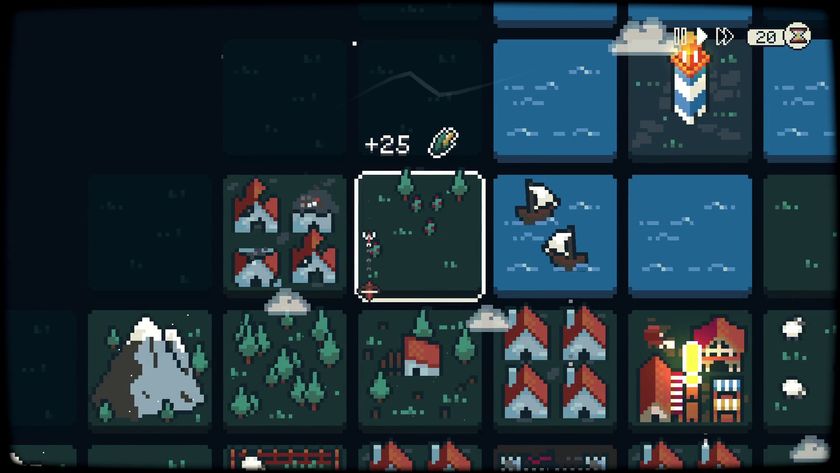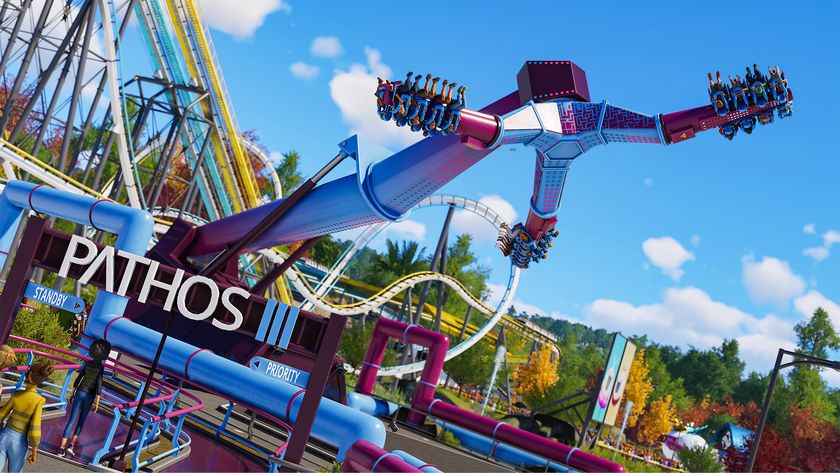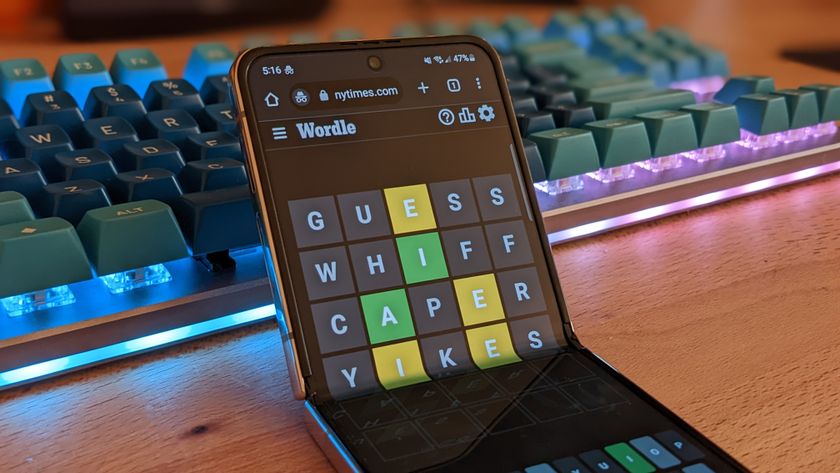The best chess games on PC
Become a Grandmaster, or just kick back on a rainy day with some friendly competition.
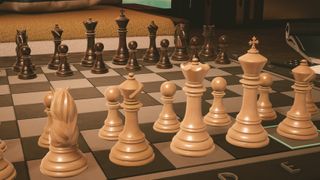
The best chess game was played between Adolf Anderssen and Lionel Kieseritzky in 1851, but the best chess videogames are something else entirely. The rules of chess are simple, but it's one of the most demanding tests of foresight, tactics, and mental endurance there is. Because there multiple reasons to play software chess—roughly split between causal fun, studying, and competition—there are many different kinds of programs and games out there.
This guide will introduce you to the software chess world, with advice for players who just want to play casually online or offline, as well as those who want to seriously study opening moves and analyze historical matches.
The best free online chess games
PC Gamer's got your back
Lichess.org is my preferred online chess game. It's free and supports plenty of match styles, including multi-day correspondence. The best thing about it is that you can play anonymously without creating any kind of account, though I find that means I'm more likely to encounter players who resign or request a draw immediately—you never know who you might be paired with. For practice, you can also play against the Stockfish engine (more on what that is in the sections below).
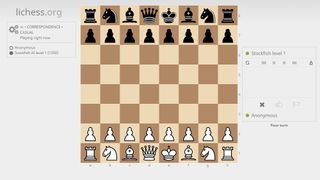
Chess.com is a good commercial free alternative. You have to put up with a few ads, and it'll bug you to pay for an optional premium subscription, but as a way to quickly start playing chess online at any skill level, it's one of your best bets. It runs in your browser with a simple, clean board design, and has a ton of players so I've never had a hard time finding a match with someone of a similar skill level (which is to say, not very much skill).
The best chess videogame
Chess Ultra is a gorgeous chess game for those who just want to play chess without dealing with the complicated software in the sections below. It includes VR support, an AI opponent with several difficulty levels, as well as local and online multiplayer, Twitch integration, and the option to export matches. It also includes basic tutorials for newcomers. For anyone who simply wants to play chess, this is your game—simple and beautiful, like chess itself. It's a good deal, too: just $13 on Steam, and $9.09 right now during the Halloween sale.
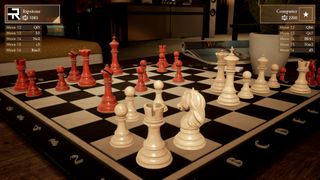
For a free-to-play alternative, try Simply Chess. It's not nearly as slick as Chess Ultra, and it crashed on me pretty quickly, but hey, it's free. It supports online play with a separate account, and comes with a good computer opponent via the Stockfish engine (see the section below for an explanation on that).
The best chess engines
If you want to play against a powerful, customizable computer opponent for the purpose of studying chess, you'll want a chess engine. I recommend the free and open source Stockfish engine or its derivatives.
Komodo is also highly ranked, though you'll have to pay a subscription for the latest version (Komodo 9 is free), and Houdini costs €40 for the standard edition.
These engines are primarily for training—you can play against them, analyze chess positions, and pit them against each other—so they're for people who seriously want to study the game. If you're not sure a chess engine is something you want to tinker with, don't buy anything—free engines are extremely powerful. (I consult the rankings from computerchess.org.uk.)

The best chess engine GUIs
An engine alone won't do much for you, as they don't include any kind of graphical user interface, just a console. To easily play against a chess engine or use it to analyze boards, you'll want to pair it with a chess GUI. There are lots of free ones. Most come with engines installed already, so you can get started with one download.
Lucas Chess: Simple and easy to understand for beginners. It includes a bunch of engines and training tools, and the UI isn't too confusing, even if you're unfamiliar with the more complicated functions of chess engines.
Arena Chess GUI: Arena Chess is more daunting for newcomers than Lucas Chess, but it includes a great deal of features, as well as support for 19 languages and a Linux verison.
WinBoard: It isn't the prettiest GUI, but WinBoard and Xboard are feature rich and include support for chess variants, too.
SCID: Like the other GUIs on this list, SCID can be used to play against an engine, but it's most useful as a fast way to organize and analyze databases of chess games. You'll want to pair it with MillionBase, a massive database of chess games in PGN format (scroll to 'Data Downlods' here) or other chess game databases. If you like the SCID interface, you can also try SCID vs PC as a GUI for playing chess.
Commercial chess software
You can play and learn a lot about chess without spending a dime, and that's where I recommend starting, but pro packages come with lots of bells and whistles if you have the cash. Much of what you're paying for is their completeness, and the quality of their training tools.
Fritz 15 ($65 on Steam) is a storied piece of chess software, and its current engine is written by Rybka engine creator Vasik Rajlich (though you can use it with other commercial and free engines). It's a bit of a mess to install (activation keys!) and the interface is just as complicated as any free software's, but it comes with huge database of games, and some nice features. I especially like 'Friend Mode,' which allows you to play against a computer opponent that adjusts to your skill level. It also offers hints that aren't too direct, helping you learn without losing track of why a certain move is better than others.
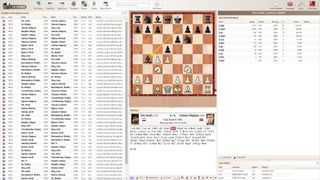
Fritz 15 also includes a 6 month membership to Playchess.com. If you want a complete package and don't mind spending the money, it's a reasonable choice. It isn't any easier to use than the free options, though, so I'd suggest looking up some tutorials.
If you want to spend less, Fritz 14 is still available, as is the $20 Fritz for Fun 13, which isn't as simplified as you might expect from the name—you're getting a lot of the same features as in later versions, and you can import newer engines.
For a pricier, less flashy option, Hiarcs (which I haven't had a chance to test yet) boasts a large database and feature set.
Only serious chess players or those who want to design their own chess engines will want to drop $150 on ChessBase 13 Academy or $235 on ChessBase 13 Pro. These tools are not for playing, but for analyzing chess matches.
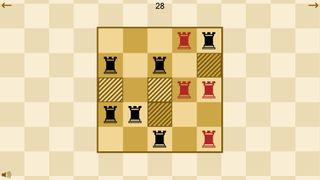
Fun chess-related games
For something a little different, below are some entertaining chess and chess-adjacent games.
Placement is a clever puzzle game in which you must arrange chess pieces on a board such that they are all protected exactly once. It's not too challenging, but it can help beginners train their ability to instantly read the board.
Knights is another chess-based puzzle game. The goal is to move knights, with their classic L-shaped movement rules, onto the square of their color on small boards. If it sounds easy, you've got another thing coming.
The original Battle Chess is just a tad overpriced for a game that runs in DOSBox and takes ages to play because it's full of silly, slow walking and battle animations, but nostalgia forgives all.
Chess 2: The Sequel has become much easier to recommend than it was when we originally reviewed it. The price has dropped to just $6, and a couple of features have been added. You have just about no chance of finding a random opponent online anymore, but it's still pretty fun to play against the AI. The gist is this: it's like chess, except with special units with new behaviors and a new win condition. Aside from a checkmate, you can win by crossing the board's mid-line with your king. It's a cute twist that requires you to think very differently.
The biggest gaming news, reviews and hardware deals
Keep up to date with the most important stories and the best deals, as picked by the PC Gamer team.

Tyler grew up in Silicon Valley during the '80s and '90s, playing games like Zork and Arkanoid on early PCs. He was later captivated by Myst, SimCity, Civilization, Command & Conquer, all the shooters they call "boomer shooters" now, and PS1 classic Bushido Blade (that's right: he had Bleem!). Tyler joined PC Gamer in 2011, and today he's focused on the site's news coverage. His hobbies include amateur boxing and adding to his 1,200-plus hours in Rocket League.
Most Popular






